OUR SERVICES

Ultrasound ABD & TVS
An ultrasound is a diagnostic technique which uses an electronic device called a transducer to send and receive sound waves in order to produce an image, which in this case will be your unborn baby.
Abdominal Ultrasound
Abdominal ultrasound is an type of imaging test. It is used to examine organs in the abdomen including the liver, gallbladder, spleen, pancreas, and kidneys. The blood vessels that lead to some of these organs can also be looked at with ultrasound.
Transvaginal Ultrasound
Ultrasound tests use high-frequency sound waves to allow doctors to see your internal organs. The sound waves bounce off your organs, creating images of their structures. A transvaginal ultrasound is a kind of pelvic ultrasound that is used to see reproductive organs like the uterus, ovaries, cervix, and vagina.
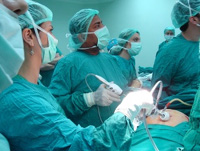
Video Laparoscopic Surgery
Laparoscopic surgery, also called minimally invasive surgery (MIS), bandaid surgery, or keyhole surgery, is a modern surgical technique in which operations are performed far from their location through small incisions (usually 0.5–1.5 cm) elsewhere in the body.
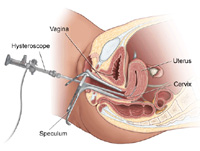
Hysteroscopy
Hysteroscopy is a procedure that allows your doctor to look inside your uterus in order to diagnose and treat causes of abnormal bleeding. Hysteroscopy is done using a hysteroscope, a thin, lighted tube that is inserted into the vagina to examine the cervix and inside of the uterus.

Infertility Counselling
Many people who have fertility problems or are having fertility treatments feel higher levels of stress. This is very common. Thankfully, help is available.
As well as getting support from your family and friends, it can be helpful to see a professional counsellor (like a psychologist or social worker) who has experience working with people dealing with infertility and fertility treatments. This person can help you manage the emotional stresses and decision-making challenges.
Counselling is even more important if you are thinking about treatments that involve a donor of sperm, egg(s), or embryos. The same applies if you are thinking about involving a surrogate mother.
How counselling can help you
If you need medical help to build your family, you may experience high levels of social, emotional, and relationship stress. These high levels of stress may affect many aspects of your life, as well as your success with getting pregnant.
Also, you must make complex decisions and choices along the way. What you decide can have an impact not only on you (and your spouse or partner), but also on any children born as a result of your decisions.
Counselling can help you to manage these stresses, and make informed and satisfying decisions. It may help you before, during, and after you undergo medical procedures, like when:
- You need information about a certain kind of treatment, or information on parenting options and resources.
- You must make a difficult decision about which path to take, or need to decide what approach is right for you.
- You feel that your usual ways of coping with stress are not working.
- Your relationship with important people in your life is being affected.
- You lose a pregnancy or come to the end of a treatment cycle that did not succeed.
- You are looking at choices for family building, like using donor sperm or eggs, a surrogate mother, or adoption.
- You are wondering whether to become a donor or surrogate mother for others.
- You need to bring closure to your efforts to create a family.
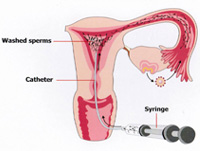
IUI (Intrauterine Insemination)
Intrauterine insemination (IUI) involves a laboratory procedure to separate fast moving sperm from more sluggish or non-moving sperm.
The fast moving sperm are then placed into the woman’s womb close to the time of ovulation when the egg is released from the ovary in the middle of the monthly cycle.

IVF (In-Vitro Fertilization)
IVF treatment involves the fertilisation of an egg (or eggs) outside the body. The treatment can be performed using your own eggs and sperm, or using either donated sperm or donated eggs, or both.
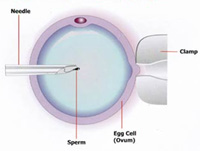
ICSI (Intra Cytoplasmic Sperm Injection)
Intra-cytoplasmic sperm injection (ICSI) differs from conventional in vitro fertilisation (IVF) in that the embryologist selects a single sperm to be injected directly into an egg, instead of fertilisation taking place in a dish where many sperm are placed near an egg.
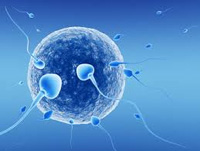
Sperm Freezing
Sperm can be frozen for future use either in artificial insemination or other fertility treatments, or be donated.
Donated sperm has to be stored for six months before it can be used in treatment, in order to screen the donor for infections.
Sperm cells have been frozen, thawed and successfully used in treatment for more than 40 years, although not all sperm survive the freezing process.

Embryo Freezing
Often with IVF or ICSI, people have a number of unused embryos after their first cycle. Some people choose to freeze them for use in later treatment cycles or to donate for use in others’ treatment, research purposes or training.
Your chances of becoming pregnant with a thawed frozen embryo are not affected by the length of time the embryo has been stored. But not all embryos will survive freezing and eventual thawing when they come to be used. Very occasionally no embryos will survive.
 Dr. Asha R. Gangane
Dr. Asha R. GanganeM.D., D.G.O. (BOM.) Dip ART (GERMANY)
With latest technology and
vast experience, we, at
Devika IVF Centre, make little miracles everyday and strive to
bring a ray of hope in the
lives of the childless.
